30 English Fitness Words to Boost Your Learning English
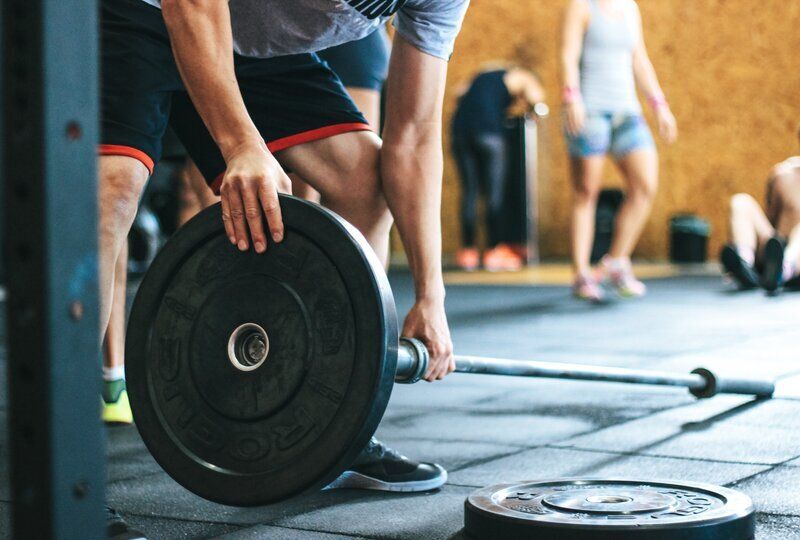
Fitness junkie, gym rat, gains...you might think fitness is all about the physical—but what about the mental? Have you considered using your hobby as an English practice?
Before we start, what is fitness?
Fitness is the state of being in good physical health. It can describe your muscles, your endurance or stamina, your flexibility or your overall body condition. It's often shortened to "fit." When we say someone is fit, we are saying they are healthy and strong.
Today we are going to look at English fitness words that are mostly slang—that is, informal English.
If you're in the the middle of a work-out class, and your English-speaking gym coach tells you to do a burpee, you don't want ruin the rhythym by stopping and wondering, "What is a burpee?" In that moment, looking up a definition isn't ideal.
Whether you're a gym rat or a total beginner, whether you're into dance or kickboxing, cycling or yoga, knowing these English fitness words will help you save time and frustration. Let's get started!
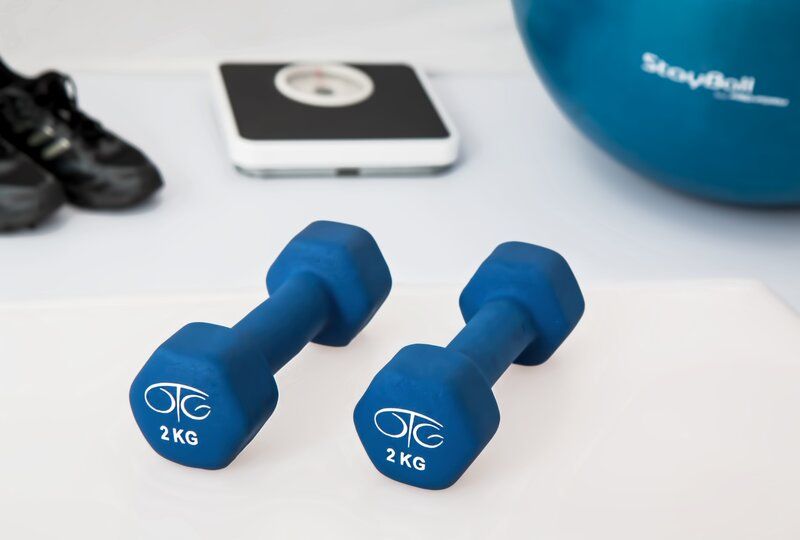
What English Fitness Words Should I Listen For?
Let's start with some vocabulary. We learned from watching the Olympics how sports phrases end up in everyday English. Here are some common English words or short phrases you probably don't know:
Work out - Let's start with the easiest one. "Work out" means to exercise. It can mean anything from going to the gym, taking an exercise class, going for a run, etc.
Ex. One of my favorite hobbies is working out.
To be/to stay in shape - "In shape" means that someone's body is fit. While it refers to the literal shape or visual of a person's body, it really just means that they're healthy.
Ex. I really want to stay in shape, so my New Year's Resolution is to go to the gym more.
Toned - This refers to muscle tone. It means someone has low fat and high muscle definition, so you can see the shape of their muscles easily.
Ex. I don't want to lose more weight. I just want to be toned.
In good condition - Similar to "in shape", it means your body or a body part is healthy and working well.
Ex. Your heart is in good condition!
Aerobics/cardio - Aerobics literally means "with oxygen", while cardio is short for cardiovascular exercise. Both are types of exercises that focus on building strength and stamina through activities that get your heart rate and breath up. For example, running, stepping, walking, or swimming. There's many kinds of cardio exercise.
Ex. I want to focus on building my endurance, so I'm taking an aerobics class.
Ex. I'm not a huge fan of weight lifting, but I love cardio.
Lifting - Short for "weight lifting," this means exercises that use weights, like dumbbells or kettlebells, to build muscle.
Ex. I didn't use to lift much but I got really into it last year.
Body weight - Body weight refers to exercises that focus on using the weight of your body to build muscle or stamina.
Ex. After my injury, my physical therapist recommended I don't lift with weights but instead do some body weight exercises.
Loosen up/warm up - When you start an exercise routine or work-out, you often start with stretches or light exercise to get the heart rate up and loosen your muscles. This is called the "warm up."
Ex. It's safer to start with a warm up before jumping into some more difficult exercises.
Sets and reps - Reps are short for "repetitions." A rep refers to a single time you perform an exercise. If you are doing 5 repetitions of push-ups, that means you will do the push-up 5 times.
Meanwhile, sets are a group of repetitions. If you are doing three sets of 10 repetitions, that would mean you are doing:
- 10 repetitions before pausing
- Another 10 repetitions before pausing
- Then a final third set of 10 repetitions
In total, you would be doing 30 repetitions of whatever exercise you are performing.
Ex. We are going to start with 4 sets of 12 reps of jumping jacks.
Spot someone - If someone is lifting heavy weights, they will want someone to spot them. This means that a person will stand behind the weight-lifter and watch to ensure they safely finish the exercise. If they slip or can't finish the move, the spotter can help them get back into starting position.
Ex."Can somebody spot me?"
Cool down - A "cool down" is the opposite of "warm up." When you are finished with your work out, it is a good idea to do some slow stretches or activities to decrease your heart rate and let your body relax back to a resting state.
Ex. Alright, this is our last exercise before we cool down.
Lose/shed weight - For some people, losing weight is their primary motivation for working out. To lose or shed weight means to reduce how much they weigh or to reduce the fat on their body.
Ex. After going to the gym, Jim lost a lot of weight.
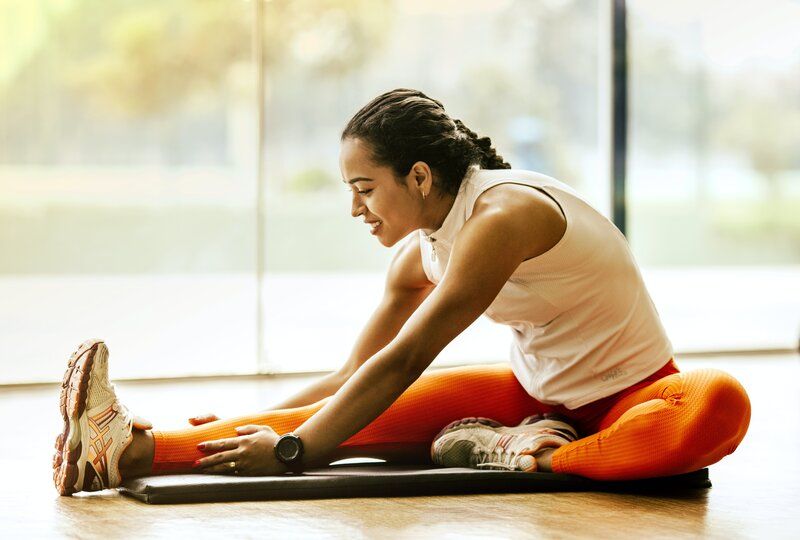
Remember Your English Body Parts
You know arm, leg...head, shoulder, knees and toes. Let's look at some body parts or muscle groups that are more advanced, and that any gym instructor will want you to know:
Thighs - Thighs are the part of your leg between the knee and the hip. This is a powerful muscle group that helps you push your leg forward. Your thighs are essential for kicking or walking.
Quads - Quadricep muscles or "quads" are a group of muscles at the front of your thigh. They have the most mass of any muscle group in your body and are necessary for running, walking and more.
Calves - In this context, this English word doesn't mean a baby cow. Calves are the thick, round muscle on the back of your lower leg, under the knee. It pushes your leg forward when you walk.
Glutes - Glutes, or gluteus muscles are the large muscles of the buttocks. They are important for squats or lunges.
Abs - Short for "abdominal muscles," abs are the group of muscles sitting on top of your stomach. While having pronounced abs requires very low body fat, many gym-goers still seek to have "six-pack abs"—that is, abdominal muscles that are so toned and defined, you can clearly see each of the six muscles.
Core - Your "core" refers to the abs, stomach and general torso muscles, including the ones that protect your spine. If a gym coach tells you to tighten your core, it means to tighten those abdominal and side muscles.
Biceps - Biceps are the muscle in the upper arm between the elbow and the shoulder. When someone flexes their arms, it shows off the bulge of muscle known as the bicep.
Triceps - Triceps are the other side of the arm from the bicep. They are the muscle on the back of the upper arm, between the elbow and the shoulder. These are important for push-ups.
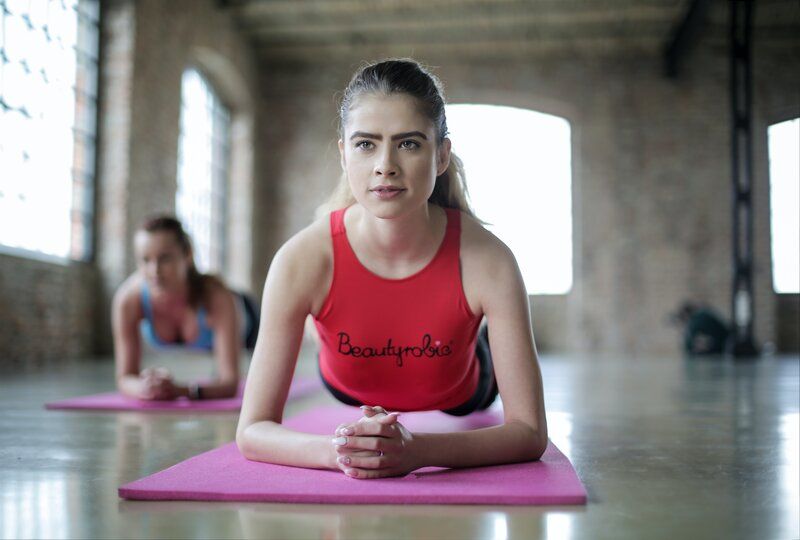
Common English Exercises or Routines
These are words that describe specific exercises and body movements. If you are more of a visual learner, each links to a video clip that will show you the exercises.
You probably are familiar with these exercises in your native language, but we are going to name and explain them in English so you can see some of the muscle names we just learned in action.
Plank - A plank is also a word that describes a flat board of wood. For this exercise, imagine yourself as a straight piece of wood.
- You start on the ground with both hands and feet planted firmly on the floor.
- Push yourself up. Your shoulders, butt and feet should all be in one straight line.
- Hold yourself there for one minute.
That's a plank! Alternatively, you can start on your elbows for a lower plank.
Push-up - A push-up is almost identical to a plank, except you are moving away from the ground.
- Start in a plank position, so you are holding up your body off the ground in a straight line.
- Let yourself return to the ground, elbows square and pointing out.
- Then you will push yourself up again.
That is one push-up!
Squat - This is a common exercise that builds your glutes and thighs.
- You start in a standing position with your legs and knees shoulder-width apart.
- Begin to lower your top half of your body until you are sitting back and your knees are in vertical line with your toes.
- Keep your back straight and don't stick your butt out too much.
- You should feel a burn in your thighs and glutes.
- Stand up again and pause before lowering yourself back down to do another squat.
Some people also use resistance bands or weights to add some extra difficulty to their squats.
Burpee - A burpee is many people's least favorite exercise because it is difficult and require a lot of muscles. But they are great for building strength and stamina!
- Start standing.
- Drop down to the ground for a push-up.
- Then, bring yourself back up into a big jump off the ground.
- Once you land, you drop down again for another push-up.
Jumping jack - A jumping jack is a great aerobic exercise that gets your heart beating fast.
- Start standing.
- Jump your legs out so you are standing with your feet shoulder-width apart, and at the same time, raise your hands above your head, reaching up to the sky. You should look like an X shape.
- Then, snap your feet and hands back down.
That is one jumping jack. It's great to do multiple in a row.
Now you know some pretty common words and body parts that you'll find in any English-speaking gym.
As a reminder, be careful with these exercises and be sure you are doing the correct form. Incorrect form could result in injuries. If you want to learn more about advanced English vocabulaly related to the body or movement, studying English medical words can never hurt!
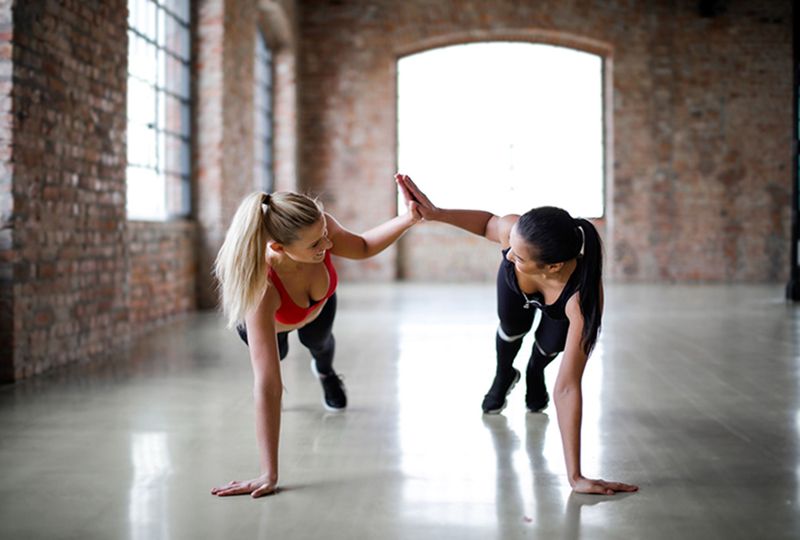
Informal Fitness Idioms to Remember
As I said above, fitness words in English are often tied up with informal slang. Let's look at some common fitness phrases you can use with your gym buddies or in gym-focused internet spaces.
Feel the burn - This means to really focus on the painful feeling in a muscle that you get when you are stretching or doing a tough exercise. It feels like burning, doesn't it?
Don't forget leg day - This phrase is sort of a joke for gym-goers and internet dwellers. Many people, especially men, prefer to focus on building their arm or ab muscles for the aesthetics and forget their leg muscles. However, only working out your upper body and not your lower body can leave you looking unbalanced.
Push through/Crush it/You got this! - These are great encouragements! Are you spotting a friend while they lift heavy weights? Tell them to push through cause they got this.
Ripped/jacked/shredded - These words are all similar to "fit." They means someone who is super fit and has very visible muscles.
Ex. I want to go to the gym so I can be ripped.
Ex. That guy is jacked!
Gains - This is slang for visible muscle gain. If someone is building muscle and growing bigger, you can say that they are making gains.
Now you're ready to crush it at the gym.
Whether you're heading to the local sports pub with your friends to watch the big game or having a casual chat about nothing sports-related at all, don't forget to check out Jasmin's article on 20 Sports Expressions That Have Changed Spoken English Forever. There are many sports and fitness idioms that have left the realm of sports and entered everyday use.
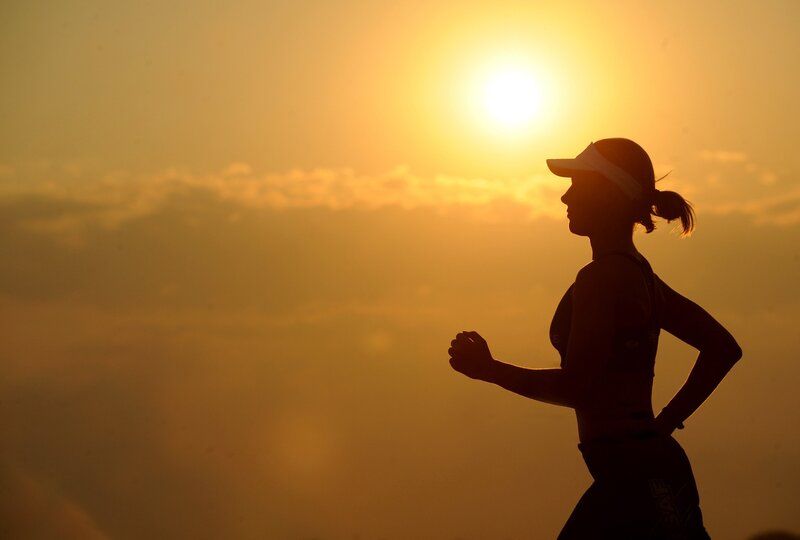
Get Up, Get Out, Go!
Working out isn't always easy, but the results make it worth it—and if you build your muscles and boost your English skills at the same time? That's a win-win!
Are you a big gym-goer? Next time you go, try using these English phrases to practice. Or, if you sign up for a new English gym class, know you'll know what your instructor means when they say glutes or biceps without disrupting the flow of your exercise.
That's it for now, and remember, don't skip leg day!
